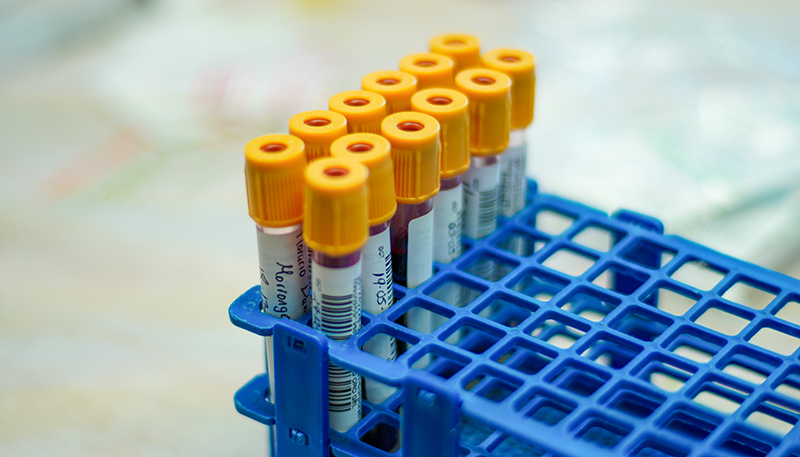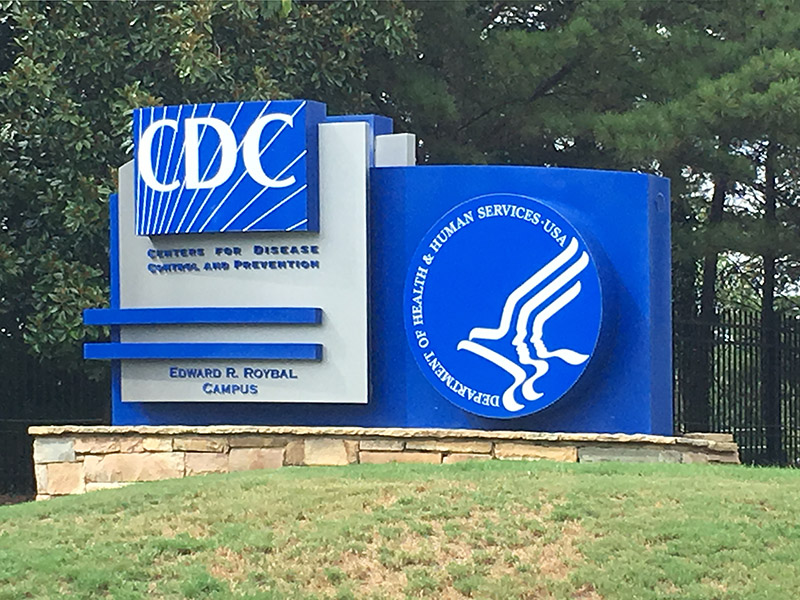FDA urged to scrap abstinence requirement for gay and bisexual blood donors
22 U.S. senators urge FDA to adopt individualized risk-based assessments instead of categorical restrictions on men who have sex with men.

LGBTQ advocates and their congressional allies are calling on the U.S. Food and Drug Administration to revise its current restrictions on men who have sex with men wishing to donate blood.
The new call for change comes in response to the American Red Cross’ announcement that the COVID-19 pandemic has led to the “worst blood shortage in more than a decade.”
Currently, the FDA imposes a three-month deferral period from the time a gay or bisexual male has last had sex before they become eligible to donate blood, in order to ensure that the blood supply remains free of HIV or other bloodborne pathogens. This applies to men who have sex with men or same-gender-loving men who are HIV-negative and in monogamous relationships with another HIV-negative man.
The cautiousness with which the FDA has gradually rolled back restrictions on gay or bisexual blood donors stems from the early decades of the AIDS crisis, when men who have sex with men — who were one of several groups deemed more at risk of contracting HIV (and other STDs) — were prohibited from donating blood, plasma, tissue, or bone marrow if they had engaged in even one sexual encounter with another male since 1977.
The FDA changed its guidelines in December 2015, recommending a one-year deferral period for at-risk groups such as gay and bi men, sex workers, or intravenous drug users — meaning previously banned groups could donate, but only if they had been abstinent for at least a year. In April 2020, that deferral period was subsequently reduced to three months.
Some advocates have previously argued that a categorical ban on groups of people is discriminatory and potentially ineffective, as the policy may allow some people who have engaged in high-risk behavior, such as having multiple sexual partners of unconfirmed serostatus, to donate blood while singling others out. Those people argue that blood donation centers should impose risk-based deferrals for all donors, rather than the current categorical-based deferral.
Additionally, advances in technology and a shortened “window period” — the time between when a person is infected with a bloodborne disease and when their immune system begins producing antibodies that can be detected by blood tests — would seem to support the idea that deferral periods for those who are at risk of bloodborne pathogens could be significantly shortened from months to a matter to weeks or days.
For instance, Richard Benjamin, the former chief medical officer at the American Red Cross who is now the chief medical officer at the biomedical products company Cerus Corp., told NBC News argued that the three-month waiting period is moot.
“If you are infected with HIV, for the first one to two weeks you will test negative. So, there’s a scientific rationale for saying, ‘Well, if there’s risk, there needs to be a delay,'” Benjamin said. “But it’s not three months — it’s more like about 10 days.”
While debates over the FDA’s blood donation criteria have persisted for years, the issue has been brought to the forefront once more as an increase in the number of COVID-19 infections, coupled with lower donation rates as people continue to socially distance during the ongoing pandemic, has led to greater demand for blood and blood products. According to the Red Cross, blood donations are down 10% since the start of the pandemic nearly two years ago. Those “dangerously low” blood supply levels have forced some hospitals to defer patients from major surgery, including organ transplants, and have left blood donation centers scrambling to find eligible donors.
In response to these concerns, 22 Democratic and independent senators, led by U.S. Sen. Tammy Baldwin (D-Wis.), penned a letter to Xavier Becerra, the secretary of the U.S. Department of Health and Human Services, and Dr. Janet Woodcock, the acting commissioner of the FDA, urging them to drop the abstinence requirement in favor of individualized risk-based assessments.
“We urge the Food and Drug Administration to quickly act on the best available science and update its outdated and discriminatory blood donor deferral policies for men who have sex with men (MSM), a long overdue step that would dramatically increase the eligible donor base,” the letter reads. “It is critical that all patients have access to the health care services they need during this pandemic, and for many, the availability of blood and blood products is a necessary component of care.”
“Any policy that continues to categorically single out the LGBTQ+ community is discriminatory and wrong. Given advances in blood screening and safety technology, a time-based policy for gay and bisexual men is not scientifically sound, continues to effectively exclude an entire group of people, and does not meet the urgent demands of the moment,” the letter continues.
According to an analysis by the Williams Institute, a think tank specializing in LGBTQ-related issues at the UCLA School of Law, allowing gay and bisexual men to donate blood would result in a 2% to 4% increase in the number of pints of blood collected, or about 345,000 to 615,300 more pints in total.
The Human Rights Campaign, the nation’s top LGBTQ advocacy organization, also reiterated calls it has made in the past calling for a move toward individualized risk assessments of donors not based on sexual orientation.
“Every two seconds, someone in the U.S. needs a blood transfusion to survive. But right now, the FDA continues to use archaic, discriminatory criteria to determine an individual’s eligibility to donate blood based solely on their sexual orientation — not their individual risk factors — which is not rooted in science, limits access to crucial blood products, and stigmatizes one segment of society,” David Stacy, the government affairs director for HRC, said in a statement.
“The FDA instead should focus its considerations for blood donor deferrals based on risky behavior by any potential donor, regardless of one’s sexual orientation,” Stacy continued. “This would both best ensure a safe blood supply and maximize the pool of blood donors.”
Support Metro Weekly’s Journalism
These are challenging times for news organizations. And yet it’s crucial we stay active and provide vital resources and information to both our local readers and the world. So won’t you please take a moment and consider supporting Metro Weekly with a membership? For as little as $5 a month, you can help ensure Metro Weekly magazine and MetroWeekly.com remain free, viable resources as we provide the best, most diverse, culturally-resonant LGBTQ coverage in both the D.C. region and around the world. Memberships come with exclusive perks and discounts, your own personal digital delivery of each week’s magazine (and an archive), access to our Member's Lounge when it launches this fall, and exclusive members-only items like Metro Weekly Membership Mugs and Tote Bags! Check out all our membership levels here and please join us today!



























You must be logged in to post a comment.